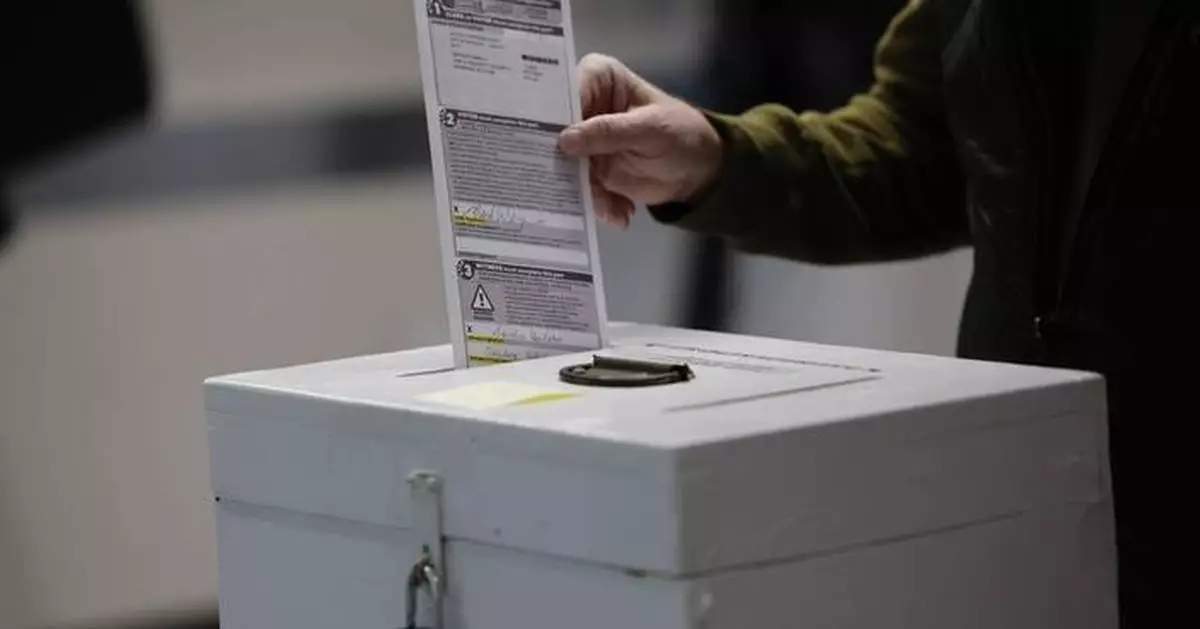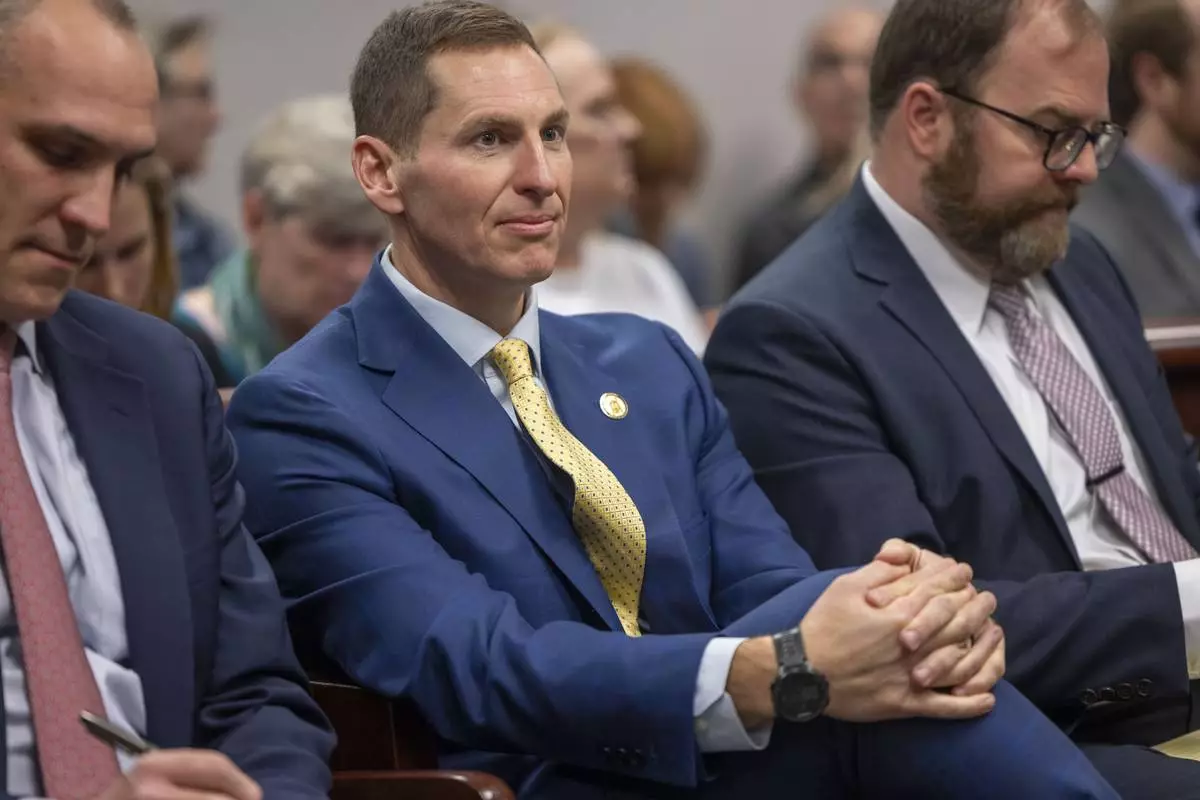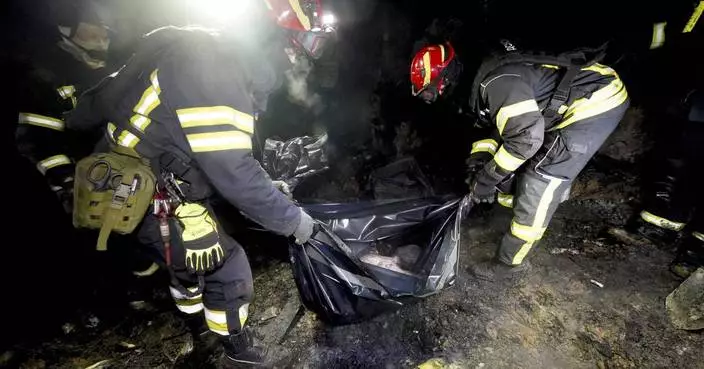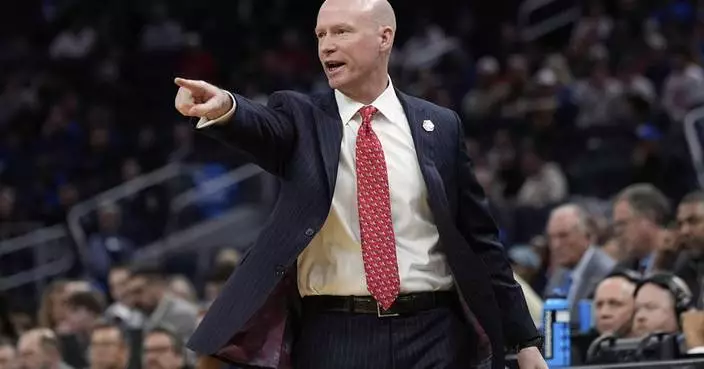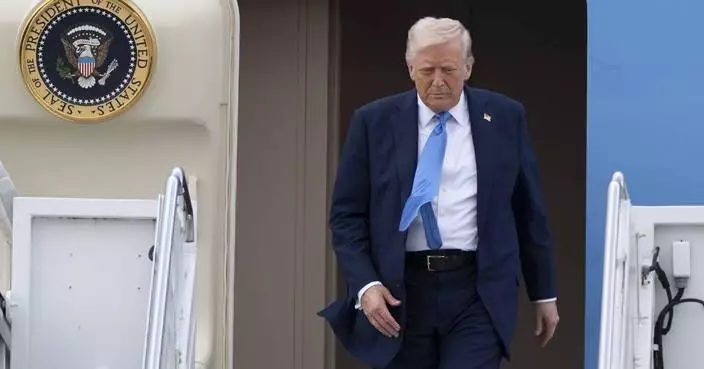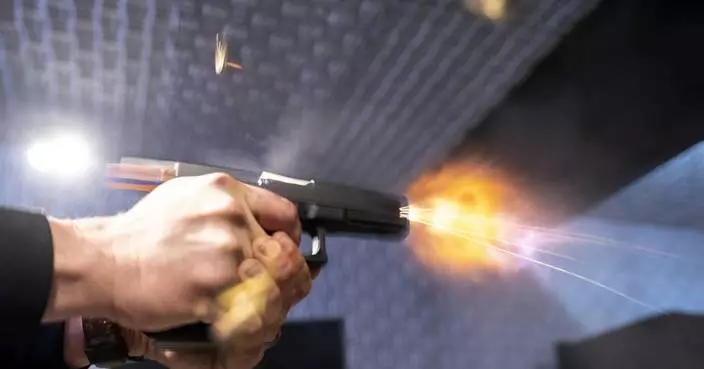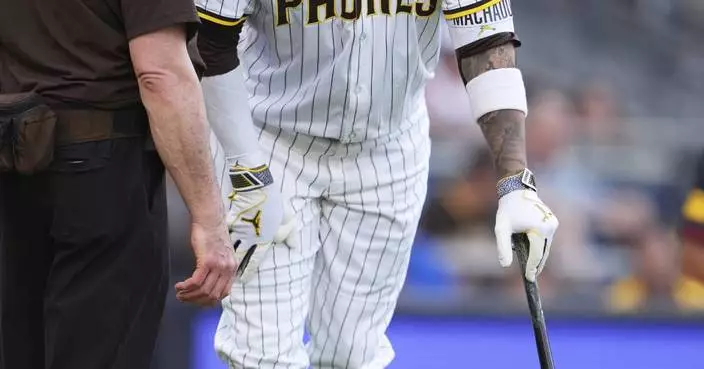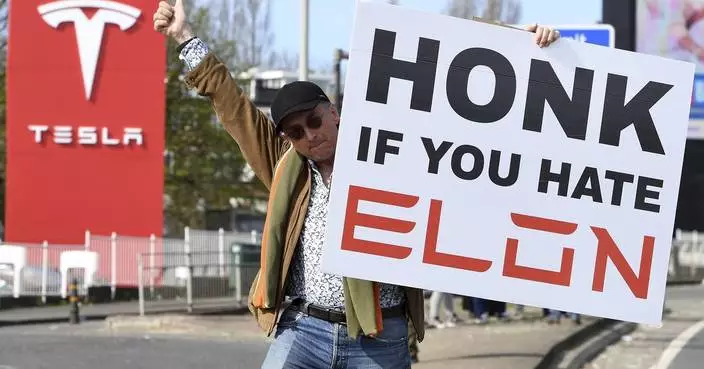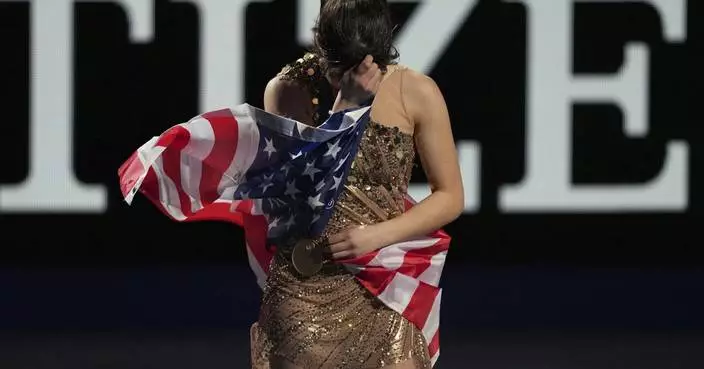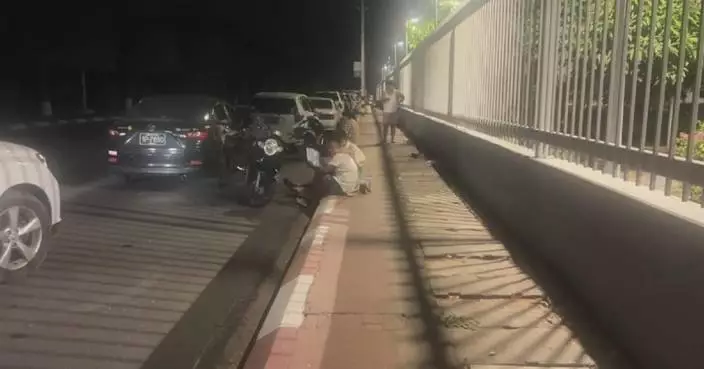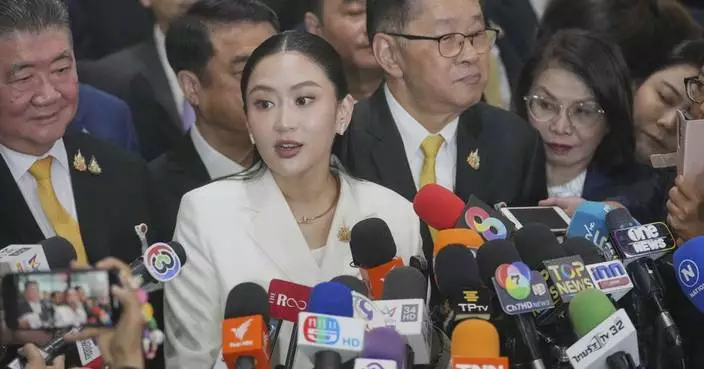President Donald Trump's executive order seeking broad changes to how elections are run in the U.S. is vast in scope and holds the potential to reorder the voting landscape across the country, even as it faces almost certain litigation.
He wants to require voters to show proof that they are U.S. citizens before they can register for federal elections, count only mail or absentee ballots received by Election Day, set new rules for voting equipment and prohibit non-U.S. citizens from being able to donate in certain elections.
A basic question underlying the sweeping actions he signed Tuesday: Can he do it, given that the Constitution gives wide leeway to the states to develop their own election procedures? Here are some of the main points of the executive order and questions it raises.
Trump’s order calls for the federal voter registration form to be amended so prospective voters must provide documentary proof of citizenship, such as a U.S. passport or a birth certificate.
It also says states should turn over their voter lists and records of voter list maintenance to the Department of Homeland Security and the Department of Government Efficiency for review, and directs federal agencies to share data with states to help them identify noncitizens on their rolls.
If states refuse to collaborate with federal law enforcement to prosecute election crimes, they could potentially lose out on federal grants, the order says.
Noncitizen voting, which is already a felony in federal elections that can lead to prison time and deportation, is exceedingly rare. Still, Trump falsely claimed in 2024 that it might happen in large enough numbers to sway the outcome of the presidential race, and it has been a top conservative priority in recent months.
Republicans have been trying to get a documentary proof of citizenship requirement through Congress, a goal this order seeks to accomplish. Voting rights groups have expressed concern about such a requirement, saying it could disenfranchise the millions of Americans who do not have proof of citizenship readily available.
The order requires votes to be “cast and received” by Election Day and says federal funding should be conditional on state compliance with that deadline. Currently, 18 states and Puerto Rico accept mailed ballots received after Election Day as long they are postmarked on or before that date, according to the National Conference of State Legislatures.
Perhaps no state is more notorious for drawn-out vote counts than California, the nation’s most populous. It allows ballots to be counted if they are received up to seven days following the election as long as they are postmarked by Election Day.
Most California voters cast ballots they receive in the mail, and in the pursuit of accuracy, thoroughness and counting every vote, the state has gained a reputation for tallies that can drag on for weeks or even a month or more. In one Northern California U.S. House primary last year, a recount settled the outcome nearly two months after the election. At the time, Secretary of State Shirley Weber, who oversees elections, said in a statement: “I understand that people want finality, but accuracy is of utmost importance.”
But the extended tallies have raised fears that they could undercut, rather than bolster, voter confidence. In 2018, then-Republican House Speaker Paul Ryan described California’s election system as “bizarre” in a year when Democrats picked off a string of GOP-held House seats.
In a statement, California Democratic Sen. Alex Padilla said Trump’s order “does nothing to improve the safety of our federal elections — what it would do is disenfranchise millions of eligible American voters.”
Padilla, who formerly served as California’s chief elections officer, said Trump “lacks the authority to implement many of the changes laid out in this illegal executive order.”
The executive order instructs the Election Assistance Commission to amend its guidelines for voting systems to protect election integrity. That would include guidance that voting systems should not rely on ballots that use barcodes or QR codes in the vote-counting process.
Trump instructed the commission to “take appropriate action to review and, if appropriate, re-certify voting systems” under those new standards within six months of the order.
In Georgia, an important presidential battleground, virtually all in-person voters use voting machines with a large touchscreen to record their votes. The machines then print a paper ballot with a human-readable summary of the voter’s selections and a QR code, a type of barcode that is read by a scanner to count the votes.
It is not entirely clear how the executive order would affect Georgia and other jurisdictions throughout the country that use these machines.
Representatives for Secretary of State Brad Raffensperger did not immediately respond Tuesday evening to messages seeking comment. The Georgia Legislature last year passed a law requiring that QR codes be removed from ballots by July 2026.
The order cracks down on foreign nationals contributing or donating in U.S. elections. It’s an issue that’s been bubbling in recent years in the states, as Republicans seek to dampen the influence of Swiss billionaire Hansjörg Wyss.
Wyss, who lives in Wyoming, has donated hundreds of millions of dollars to 501(c) nonprofit organizations that support liberal causes. One of those groups, the Sixteen Thirty Fund, donated a combined $3.9 million to enshrine abortion protections in the Ohio Constitution. It also helped thwart a proposed constitutional amendment advanced by Ohio Republicans the previous summer that would have made passing future constitutional amendments harder.
During the run-up to last year’s presidential election, legislative Republicans linked then-President Joe Biden’s appearance on Ohio’s fall ballot to passing a ban on contributions from foreign individuals, companies, governments or political parties to campaigns for or against proposed amendments to the state constitution.
Other states have followed suit, most recently Kansas — which passed a nearly identical bill earlier this month after hearing testimony from Ohio’s secretary of state. Like the Ohio bill, it appears partly a response to a successful campaign to protect abortion rights in Kansas, which received money from the Sixteen Thirty Fund. Democratic Gov. Laura Kelly has not said publicly whether she’ll sign it.
In a statement Wednesday, Wyss' philanthropic arm and an affiliated fund that steers money toward political and policy goals said, “The Wyss Foundation and Berger Action Fund comply with rules and laws governing their activities and prohibit grants from being used to support or oppose political candidates or parties, or otherwise engage in electoral activities.”
The federal government plays a fairly limited role in American elections. Article I, Section 4 of the Constitution gives states the authority to determine the “times, places and manner” of how elections are run. The so-called “Elections Clause” doesn’t get into the specifics of voting or ballot-counting procedures -– those details are left to the states – but it does give Congress the power to “make or alter” election regulations, at least for federal office.
It does not mention any role for the president or the executive branch in regulating elections. Biden issued an executive order in 2021 directing federal agencies to take steps to promote voting access, but Republicans at the time argued that the order was unconstitutional and exceeded the president’s authority. Trump rescinded the Biden order earlier this year.
Voting rights advocates have begun to make similar arguments against Trump’s order.
“A president does not set election law and never will,” said Virginia Kase Solomón, president and CEO of Common Cause, a grassroots advocacy organization that supports expanded voter access.
Sophia Lin Lakin, the director of the ACLU’s Voting Rights Project, called core parts of the executive order “a blatant overreach that threatens to disenfranchise tens of millions of eligible voters.”
Given the nation’s long history of decentralized, state-run elections, any attempt to change state election laws by executive order is likely to face challenges in court. Marc Elias, a leading Democratic election and voting rights attorney, promised exactly that.
“Moments ago, Donald Trump signed a massive voter suppression executive order," he said in a social media post. "This will not stand. We will sue.”
Ultimately, the courts will decide how far Trump can go in overhauling election procedures.
Associated Press writers Michael R. Blood in Los Angeles, Kate Brumback in Atlanta, Julie Carr Smyth in Columbus, Ohio, Ali Swenson in New York and Robert Yoon in Washington contributed to this report.
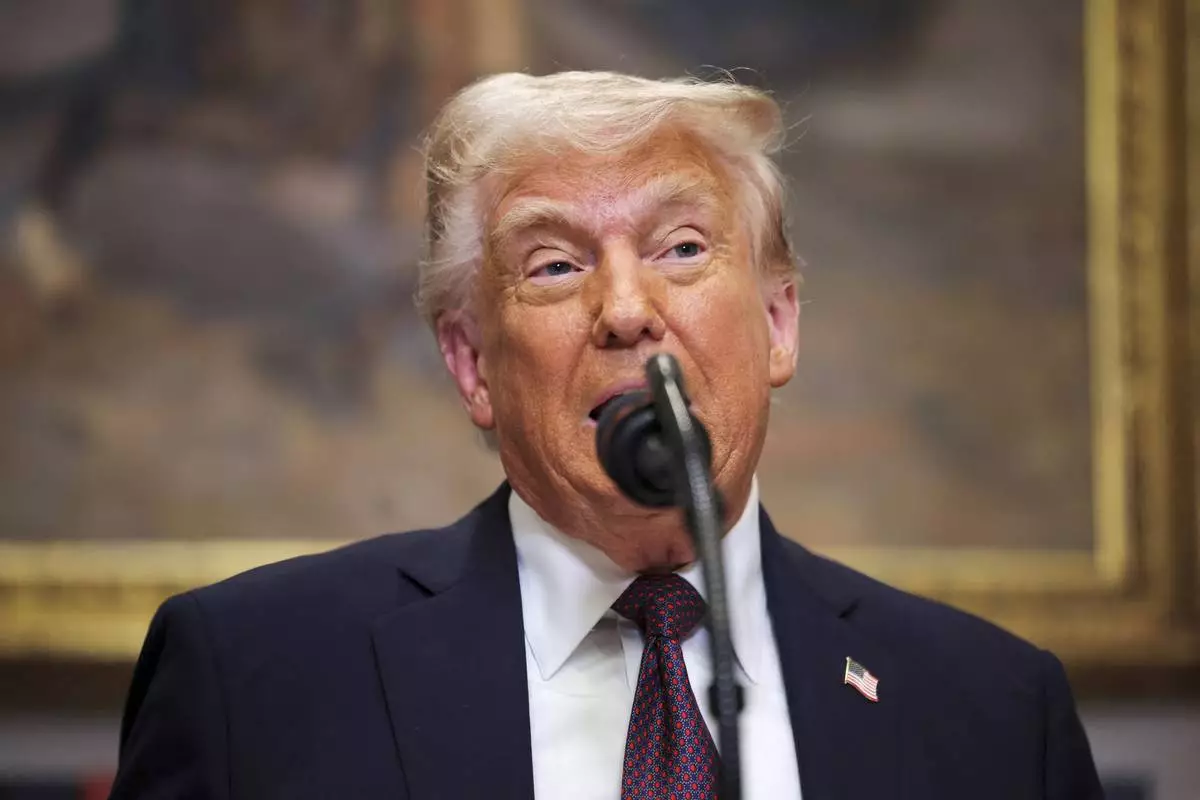
President Donald Trump delivers remarks in the Roosevelt Room at the White House in Washington, Monday, March 24, 2025. (Pool via AP)
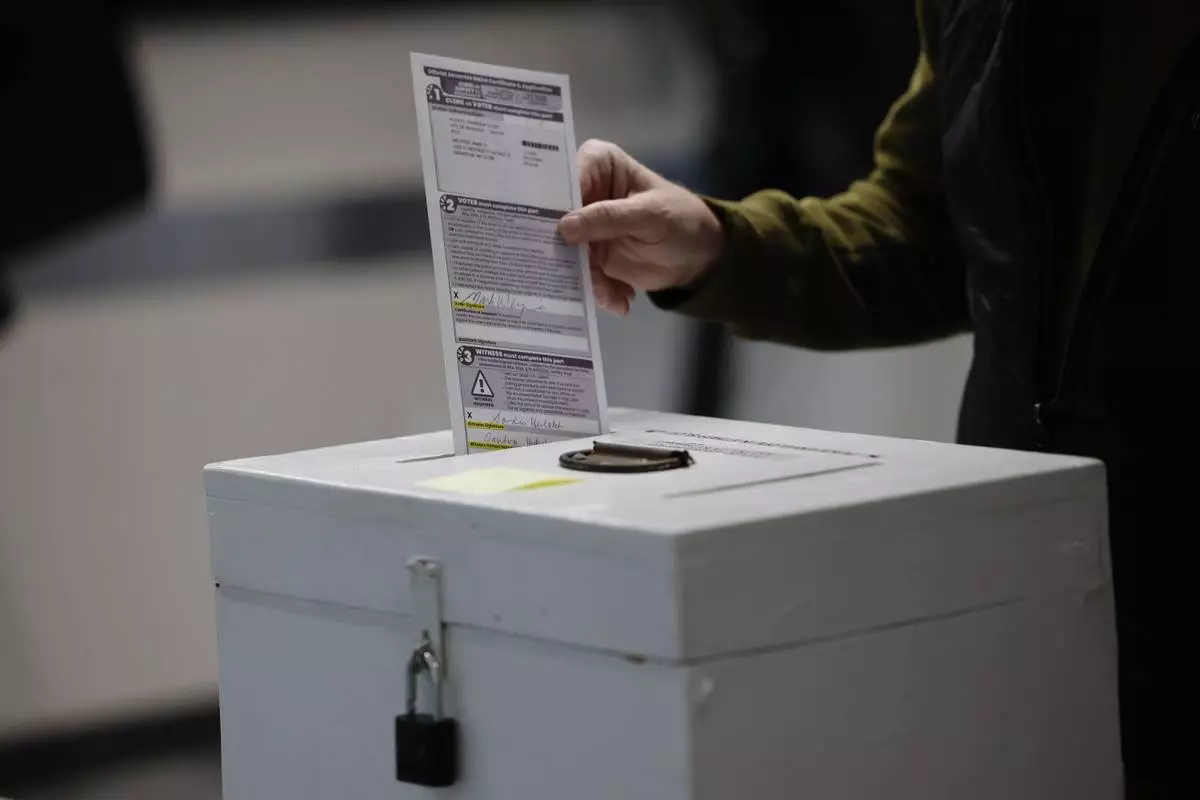
A man places his ballot in a box during early voting in Waukesha, Wis Tuesday, March 18, 2025. (AP Photo/Jeffrey Phelps)


